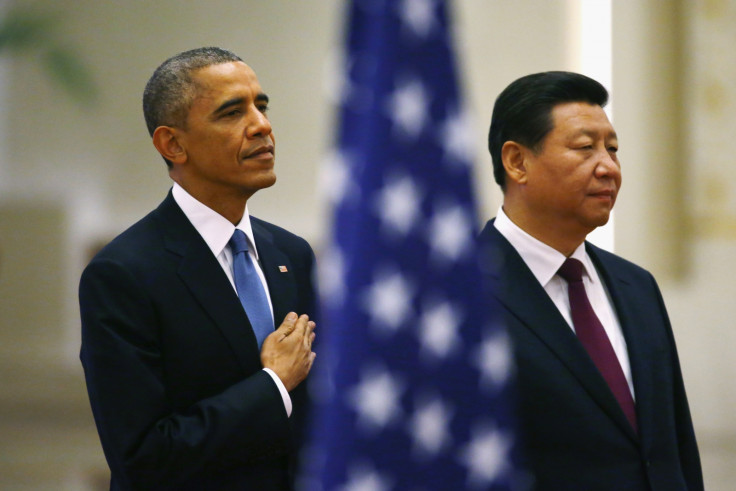From hacking to cyber espionage: US and China discuss security in the digital age

Officials from the US and Chinese governments have met for the first since an agreement was established last year in an attempt to curb the rising threat of cyber espionage and hacking between the two nations.
The fresh working group, dubbed the Senior Experts Group on International Norms and Related Issues, is now expected to meet at least twice a year, according to the US State Department. While details of the exact discussions remain scant, officials told Reuters topics included the "international norms of state behaviour and other crucial issues for international security in cyberspace."
Cybersecurity and espionage have long been a problem between the two rival nations – at least one that simmers under the surface of diplomacy. Both countries boast sophisticated intelligence agencies and hacking techniques. The US is renowned for its surveillance operations under the aegis of the NSA while, on Chinese shores, PLA-affiliated hackers have long been sanctioned by the government to single out foreign targets from whom to steal intellectual property for economic gain.
The fresh rounds of discussions was led on the US side by Christopher Painter, coordinator for cyber issues at the State Department. Officials from the Department of Justice (DoJ), Department of Homeland Security (DHS) and the Department of Defence (DoD) were also present. Meanwhile, the Chinese delegation was led by Wang Qun, director-general of arms control at the nation's foreign ministry alongside officials from the public security ministries as well as the Cyberspace Administration of China.
Writing on The Huffington Post following the meeting, Chinese official Qun said it was in the 'shared interests' of both superpowers to cooperate on cybersecurity issues. He wrote: "While it is true that the US and China may sometimes be at odds with each other on some of the cyber issues, it shouldn't affect the cooperation between them. To fling accusations at each other is not a solution. Only through cooperation, can the US and China forge a unified and prosperous cyberspace. Otherwise, the cyberspace will divide and wither."
He continued: "The digital economy is taking up an increasingly large share of GDP in both the US and China, two of the world's key players in cyberspace. In the meantime, the two countries have evolved towards a community of shared interests with each having a stake in the other."
Escalation of threats
The initial negotiations took place during a state visit to the US by Chinese President Xi Jinping from 22 September to 28 September last year. The discussions, which many viewed with open criticism, came only months after US officials revealed details about a massive cyberattack at the US Office of Personnel Management (OPM) which resulted in the loss of 21.5 million federal records. Despite denials, the hack was suspected to have originated from China-affiliated cybercriminals.
As a result, the move forced US President Barack Obama to adopt a harsher stance when it came to rhetoric around cybersecurity. "We've made very clear to the Chinese that there are certain practices that they're engaging in that we know are emanating from China and are not acceptable," he said at the time. "And we can choose to make this an area of competition, which I guarantee we'll win if we have to, or alternatively we can come to an agreement where we say this isn't helping anyway, let's try to have some basic rules of the road in terms of how we operate."
In the resulting talks, according to the White House, the two presidents agreed that "neither country's government will conduct or knowingly support cyber-enabled theft of intellectual property, including trade secrets or other confidential business information, with the intent of providing competitive advantages to companies or commercial sectors".
© Copyright IBTimes 2025. All rights reserved.






















